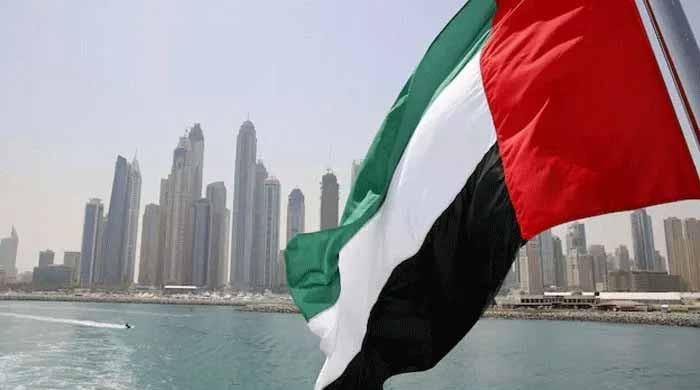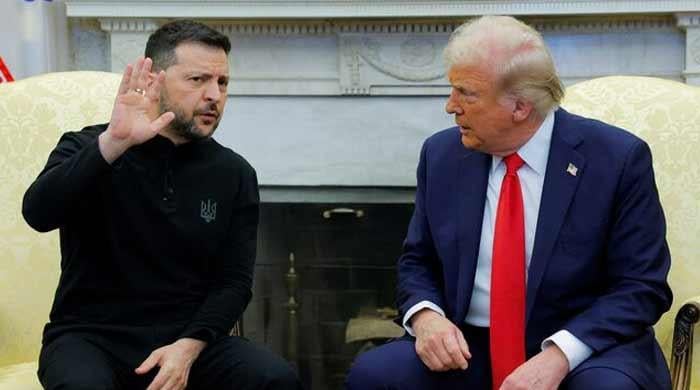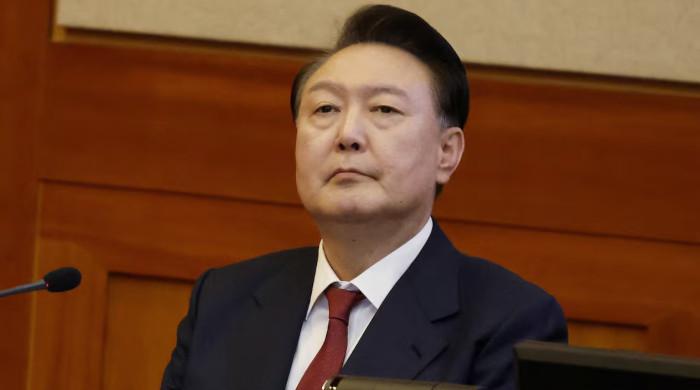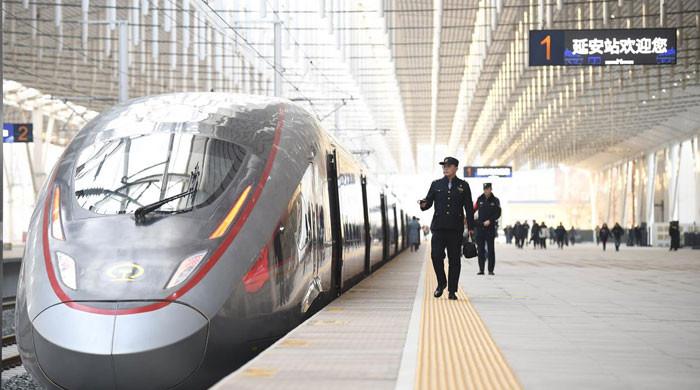US, Saudi Arabia agree on stopping Iran getting nuclear weapons
Saudi Arabia says it would open its airspace to all air carriers, paving way for more overflights to and from Israel
July 16, 2022
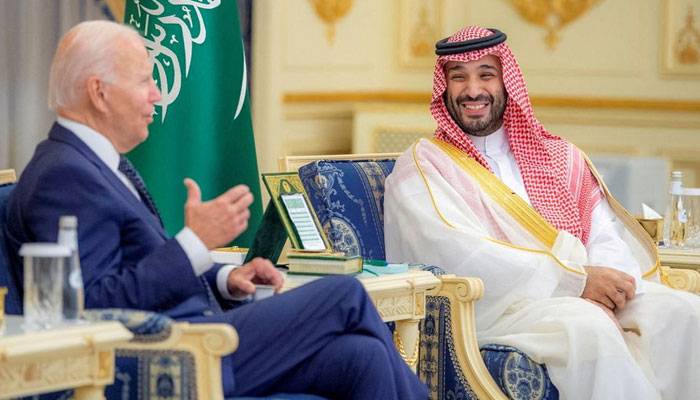
- US needs Saudi help at a time of high crude prices.
- Saudi Arabia and US underscore need to further deter Iran’s interference in "internal affairs of other countries."
- Both sides stressed the importance of preserving the free flow of commerce.
JEDDAH: The United States and Saudi Arabia agreed on the importance of stopping Iran from "acquiring a nuclear weapon", during a visit by US President Joe Biden, a joint statement carried by the Saudi state news agency (SPA) said.
The statement said Biden also affirmed the United States’ continued commitment to supporting "Saudi Arabia’s security and territorial defence, and facilitating the Kingdom’s ability to obtain necessary capabilities to defend its people and territory against external threats."
Tehran and Riyadh, the leading Shia and Sunni Muslim powers in the Middle East, severed ties in 2016 over backing opposing sides in proxy wars across the region, from Yemen to Syria and elsewhere.
Saudi Arabia and the United States underscored the need to further deter Iran’s interference in "the internal affairs of other countries, its support for terrorism through its armed proxies, and its efforts to destabilise the security and stability of the region," the statement said.
Both sides stressed the importance of preserving the free flow of commerce through strategic international waterways such as the Bab al-Mandab and the Strait of Hormuz.
In 2015, Iran signed a deal with six major powers to limit its nuclear programme to make it harder to obtain a weapon in exchange for relief from economic sanctions. Iran says its nuclear programme seeks only civilian atomic energy.
In 2018, then-US President Donald Trump pulled the United States out of the pact, saying it was insufficient to keep Iran from developing nuclear weapons.
Iran has since ramped up some nuclear activities, putting a ticking clock on an attempt to return to a deal in talks between Western powers and Tehran in Vienna.
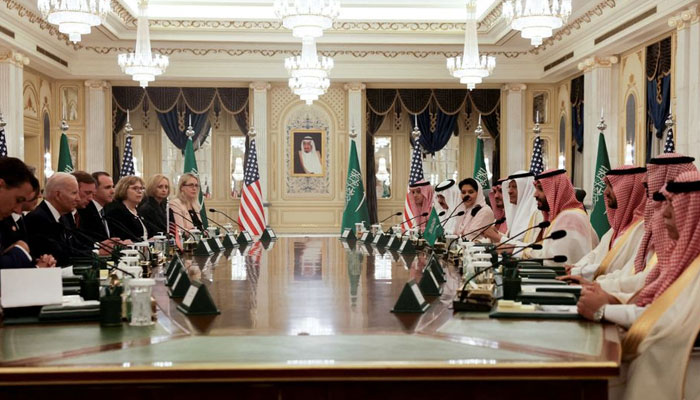
The US president will also hold bilateral talks with the leaders of Egypt, the United Arab Emirates and Iraq before taking part in the wider summit where he will "lay out clearly" his vision and strategy for America's engagement in the Middle East, US national security adviser Jake Sullivan said on Friday.
"He's intent on ensuring that there is not a vacuum in the Middle East for China and Russia to fill," Sullivan said.
Biden will discuss energy supplies with Gulf oil producers, but Washington said it does not expect OPEC heavyweight Saudi Arabia to boost oil output immediately and will await the outcome of an OPEC+ meeting on Aug. 3.
Gulf states, who have refused to side with the West against Russia in the Ukraine conflict, are in turn seeking a concrete commitment from the United States to strategic ties that have been strained over perceived US disengagement from the region.
Riyadh and Abu Dhabi have been frustrated by US conditions on arms sales and for being excluded from indirect US-Iran talks to revive a 2015 nuclear pact that they see as flawed for not tackling regional concerns about Tehran's missile programme and behaviour.
"The most important demand from the Saudi leadership and other Gulf leaders -- and Arabs in general -- is clarity of US policy and its direction towards the region," said Abdulaziz Sager, chairman of Riyadh-based Gulf Research Center.
Israel, which shares their concerns over Iran, encouraged Biden's trip to the kingdom, hoping it would foster a warming between Saudi Arabia and Israel as part of a wider Arab rapprochement after the UAE and Bahrain forged ties with Israel in US-brokered pacts that received Riyadh's blessings.
'Groundbreaking process'
In a sign of progress under what Biden described as a groundbreaking process, Saudi Arabia said on Friday it would open its airspace to all air carriers, paving the way for more overflights to and from Israel.
Washington and Riyadh also announced the removal of US and other peacekeepers from Tiran -- an island between Saudi and Egypt in a strategic position leading to the Israeli port of Eilat. The troops have been stationed as part of accords reached in 1978 and which led to a peace deal between Israel and Egypt.
The US-Arab summit would discuss "tighter coordination and collaboration when it comes to Iran," Sullivan said, as well as regional integration, including that of Iraq, where Tehran has built deep influence. Support by wealthy Gulf states for global infrastructure and investment will also be discussed.
The United States and Israel are also seeking to lay the groundwork for a security alliance with Arab states that would connect air defence systems to combat Iranian drone and missile attacks in the Middle East, sources have said.
Such a plan would be a hard sell for Arab states that do not have ties with Israel and balk at being part of an alliance seen as against Iran, which has built a strong network of proxies around the region including in Iraq, Lebanon and Yemen.
Senior Emirati official Anwar Gargash said on Friday the idea of a so-called Middle East NATO was difficult and that bilateral cooperation was faster and more effective. Read full story
The UAE, he said, would not back a confrontational approach: "We are open to cooperation, but not cooperation targeting any other country in the region and I specifically mention Iran."




